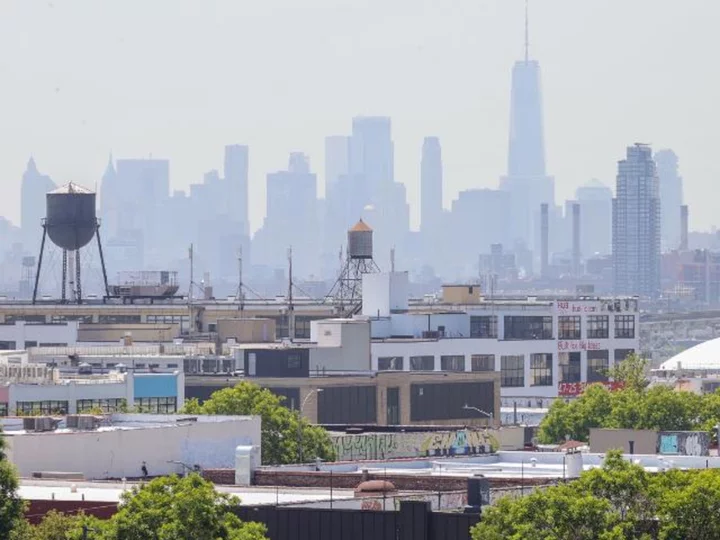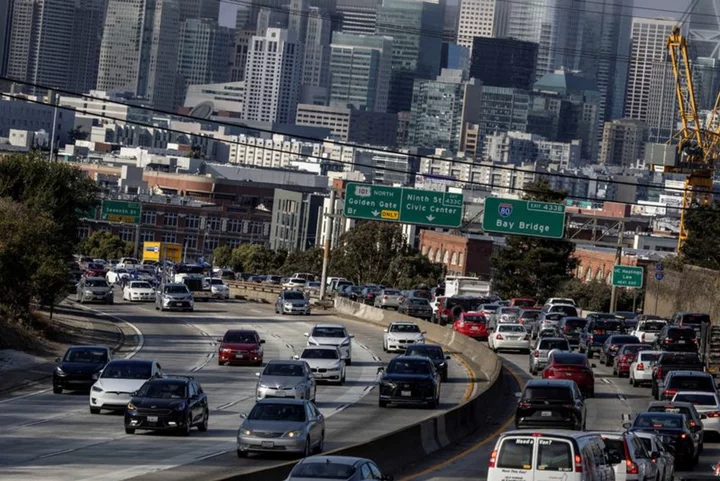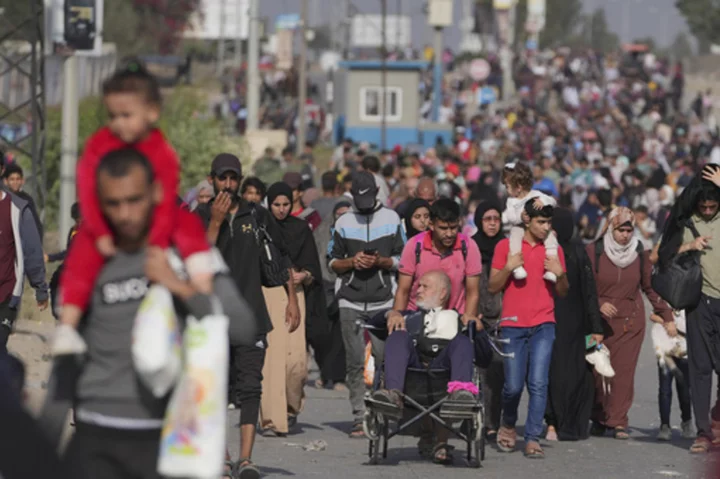After weeks of reporting about the wildfires in Alberta, British Columbia, and Nova Scotia, Quebec is now the latest hotspot for fires in Canada.
More than 8 million acres have burned this year across Canada, with nearly half a million acres in Quebec alone, which is sending thick smoke south and east into the US, affecting air quality for millions.
Air quality alerts are in effect Monday for portions of Wisconsin, Minnesota and northern Illinois, including places like Milwaukee, Green Bay and Chicago.
"Weather conditions are such that widespread ozone and or particulate levels are expected to be at or above the unhealthy for sensitive groups category of the air quality index," the National Weather Service in Chicago said. "Active children and adults especially people with pulmonary or respiratory disease such as asthma should limit prolonged outdoor activity."
In the Northeast, the smoke is at higher altitudes, which is creating hazy skies and keeping temperatures slightly cooler.
A cold front will move south over the next few days, bringing northerly winds and pushing smoke-filled Canadian air even farther south and east through the week.
By Tuesday afternoon, thicker smoke will push into some of the bigger cities like New York, Boston and Washington, DC, especially affecting people who have respiratory problems.
While the smoke shouldn't cause visibility issues, the weather service in New York City said haze aloft and the smell of smoke are likely.
More than 400 wildfires continue to rage across Canada, with an estimated 26,000 people still displaced from their homes after being forced to evacuate, according to Canada's federal government in a news conference held today.
"I will acknowledge the images that we have seen so far this season, are some of the most severe we have witnessed in Canada," Bill Blair, Canada's minister of public safety said. "The current forecast for the next few months indicates the potential for continued higher than normal fire activity."
In Quebec, more than 150 active wildfires are burning, according to the Canadian Interagency Forest Fire Center., which is more than double the number of fires currently burning in any other Canadian province. They are the fires largely responsible for the poor air quality in the US at the moment.
The amount of land burned is far more than normal. Quebec has seen 10 times the number of acres burned this year compared to average, according to the Canadian Interagency Forest Fire Center.
Just last week, fires were burning out of control across Nova Scotia, forcing tens of thousands of people from their homes as crews worked tirelessly to put out the flames.
Nova Scotia has seen more than 200 wildfires this year alone, which have burned more than 65 thousand acres.
"Year after year, with climate change, we're seeing more and more intense wildfires and in places where they don't normally happen," Canadian Prime Minister Justin Trudeau said in today's news conference.









